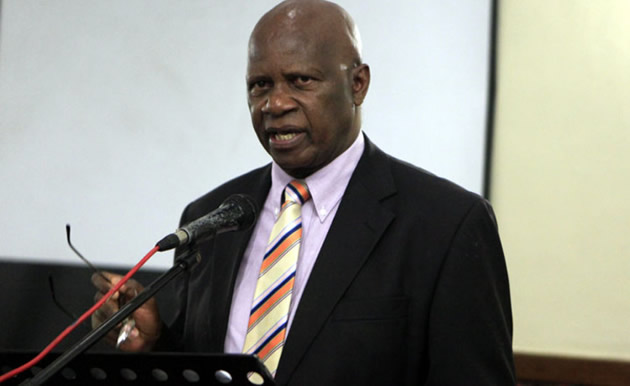$100 spot fines illegal: Experts

Samantha Chigogo Herald Correspondent—
Police have no right to fine motorists the proposed $100 spot fine for a handful of offenses because the increase in the fines is yet to be gazetted, legal experts have said. The experts said motorists who have been fined the amount can successfully mount a court challenge against the police. The $100 fine was supposed to be effective on January 1 after it was proposed by Finance Minister Patrick Chinamasa in the 2016 National Budget.
But legal experts noted that the Finance Act passed by Parliament on December 31, which made the National Budget effective, did not contain road traffic fines. Presenting the National Budget statement in November last year, Minister Chinamasa proposed that motorists who proceed against a red traffic light, overtake over a solid white line, drive without a license or operate faulty vehicles without a foot brake would be fined $100 for each offence up from $20.
Also Read:
University of Zimbabwe law lecturer Professor Lovemore Madhuku said it was wrong for police to effect the fines. “For anything in a budget speech to be law, it must be contained in subsequent legislation,” he said. “A resolution of Parliament approving the speech is not a law-making process.
“The Finance Act giving effect to the budget measures was promulgated on 31 December 2015. It has nothing on fines. Please note that it is a fact that no legislative steps have been taken to make the fines legally enforceable.” Prof Madhuku said a ministerial statement in Parliament could not be considered to be a source of law.
“A Statutory Instrument is legislation and in saying that the fines have not been introduced by legislation, we mean that there is neither an Act nor a Statutory Instrument,” he said. “Up to this point, no Statutory Instrument has been gazetted.
“The rule “rule of law” in section 3 of our Constitution prohibits the exercise of power without legal base. So, any affected person is entitled to refuse to pay the $100 fine.” Veritas Zimbabwe, an organisation which monitors law making, said in a statement that it was clear that the proposed increase, from $20 to $100, in spot fines for minor traffic offenses had not been implemented.
It said the law remained as it was before Minister Chinamasa’s budget statement, with the maximum spot fine police can demand still at Level 3 according to the Criminal Procedure and Evidence Act, Section 356(1).
A Level 3 fine is at $20 as provided for by the Criminal Law Code, Section 280 as read with the First Schedule. “There is nothing to change that position in the Finance (No. 2) Act or the numerous statutory instruments gazetted up to and including the 1st January (2016) to give effect to the budget,” said Veritas.
“What really happened in Parliament during the budget debate in mid-December was as follows: the relevant Portfolio Committees, as well as most MPs who spoke in the Budget debate, condemned the proposed increase and the Minister of Finance and Economic Development responded by conceding that $100 was excessive and needed reconsideration as to both the amount and the legal mechanism for making changes.”
Veritas noted that an amendment to section 356 of the Criminal Procedure and Evidence Act would require an Act of Parliament. A change to the monetary value of Level 3 of $20 in the Standard Scale of Fines (First Schedule, Criminal Law Code) could be made by a Statutory Instrument, but only after a draft Statutory Instrument had been approved by Parliament, the organisation said.
Prominent lawyer Mr Terrence Hussein added: “The fines cannot be enforceable until they have been gazetted. The law must go through proper proceedings and the fines must be gazetted into law.
“People who have been paying these fines have a right to contest and claim their money back as the policy changes have not been gazetted.” Another lawyer Mr Tendai Toto said it was clear from the legal processes so far that the $100 spot fine was illegal.
“If the Minister of Finance made a proposal in his budget to increase fines and Parliament approved the budget, that does not necessarily mean the increased traffic fines are effective as at the date of approval of the budget by Parliament,” he said.
“There is need for Government to gazette the new traffic fines for them to become effective.” Police have been charging motorists the $100 spot fine since January 1, with a number of the motorists phoning The Herald yesterday complaining about the issue while some brought their tickets.
The $100 fine has been viewed as excessive in various quarters and there were fears it could trigger corruption as motorists would be tempted to offer police officers smaller amounts as bribes. Efforts to get a comment from chief police spokesperson Senior Assistant Commissioner Charity Charamba were fruitless last night.








Comments